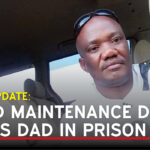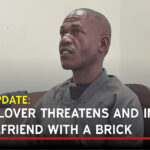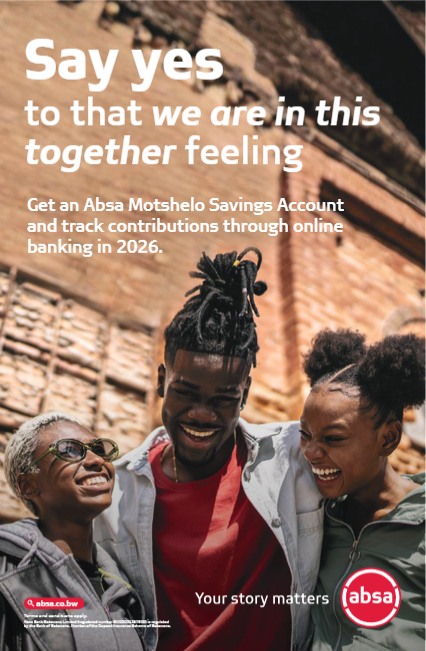Breathing new fire into a fading NGO
Emang Basadi, a Non-Governmental Organisation (NGO) which was vocal on issues of gender and women rights in the 90s has become increasingly quiet in recent years.
Outspoken leaders such as Motsei Rapelana, Joyce Anderson and Idah Mokereitane came and went, leaving many questioning the organisation’s relevance.
However, the NGO’s new President, Theresa Mmolawa has big plans to ignite the fire again and restore Emang Basadi to former glories.
Voted into power two weeks ago, Mmolawa and her newly elected committee intend to do things a little differently, as she explains in this in-depth interview…..
Firstly, congratulations on your new appointment. Emang Basadi has been dormant for several years, what ideas do you have to breathe new life back into the organisation?
Thank you. Yes, it is true Emang Basadi has been dormant for many years but I am glad that we held an AGM through which a new executive committee was ushered in. Together with this new executive, which comprises of many young people with expertise from various fields, I believe we will work together to make a huge breakthrough. So my strength is the executive committee because we have a vision to take our organisation to greater heights.
And where will you start?
Our number one area, which we agree holistically on, is organisational reform. To give you a quick background, Emang-Basadi was formed in 1986 and its constitution have been overtaken by events. It is indeed very backward and dormant and it does not go with the times nor the thinking, approaches or strategies of today, even the generation.
In our first 100 days we will review our constitution because as I have already said it is too old.
What other changes are you bringing?
We will make sure Emang Basadi is not only concentrated in urban areas, but spread across the entire country so that people can access our offices closer to them. We want to change the perception that the organisation is all about women because the truth is this organisation is for the entire family: women, men, boys and girls.
In fact, Emang Basadi was widely seen as anti-men rather than a movement to empower women. How do you plan on changing this myth?
Allow me to briefly explain how Emang Basadi got its name. It was derived from the national anthem because the founders of the organisation found it fit to call it so. They wanted women to stand up in unity with men so that together they can build this nation. Yes there was a belief that Emang Basadi is a group of women who are out there to break homes, but that was never the case!
To clear the confusion, explain to us who and what your organisation represents?
Everyone: women, men, boy and girl children, that is why through our new strategy, we are going to involve men more, the boy child, and people living with disability, churches, other vulnerable groups such as LGBTs (lesbians, gays, bisexuals and transsexuals) and every age group young and old alike because we want to see this country going forward from where it is today. We want what we are doing to benefit everyone: the poor and the rich, nobody should be left behind and we want to emphasis that Emang Basadi is a national project and we should see it that way.
This organisation is for the entire family. We will go into homes and help parents raise responsible children because we believe a family unit is very important to mould a child at a young age, teaching them the importance to respect oneself and others.
You surely have a mammoth task ahead of you!
We are going to go into a serious membership drive because our membership has dropped. We will call them and recruit new members including men and boy child to join us. We will fundraise as we have a serious hindrance of resources but we need to work and make strides and see our strategies through.
Most programmes have been focused on the girl child but you are bringing the boy child upfront, why ?
It is imperative that the boy child should be empowered the same way as the girl child if we are to make progress on matters of gender equality. Back then there was this belief that boys had superior rights to girls, so a lot of focus was given to girls. Girls have been empowered and that empowerment is a threat to the boy child of today because the boy child feels the girl child is over domineering.
It is the same with men; they feel that too much power has been given to women over them. I feel there is need for the boy child to be taken on board so they can understand that nothing has been taken from them by empowering the girl child.
They should be more responsible and learn to speak out if there is something they are not happy about. We see it as important to strike this balance and carry along the boy child. Our society has made our boys to be more of perpetrators when it comes to issues of Gender-Based Violence (GBV), so they feel they are above women and entitled to hold higher position than their female colleagues.
Growing up, did you face any gender based discrimination? Were you treated any differently from boys?
Not really. I always felt equal to any other children, including boys. Even in my upbringing, I didn’t see much difference between me and my elder brother. At the end of every term we were taken to the cattlepost and did the same household chores and errands. So when some people said a woman’s role is to listen and keep quiet, I felt this was a gap that needs to be closed.
The numbers suggest GBV is getting worse every year – what can be done to eradicate this social ill?
There is a need to define what it is. GBV is not only the physical assault; it is all those tortures, torments, physical, emotional, psychological, mentally pain. Numbers have gone up, including killings and what hurts most is that children can fight and kill others at school. We are in a society that has turned violent. It is like there is a lot of anger; the family unit is breaking apart.
There are people who say when a mother is not working and the father is the breadwinner, month end he will take her with the shopping list to get groceries. If it happens that she forgets one thing, then she will have to wait until next month end to get it and they felt that was torture and serious mental abuse. People don’t realise if you abuse the parent when the children are watching, that affects them as well, they feel the abuse. On the other hand, men feel that women abuse them a lot verbally.
So how can we get rid of GBV?
I think it is high time we have special courts for GBV so that such cases can be dealt with in a timely manner and not drag for more than three months in court. Counselling has to be done and as families we should learn to have family gatherings and talk about things that bring us closer together. We must work hard to eradicate the social ills that we see today. Let’s be open about these things and treat all equally; when a man wants to cry allow them to do so.
You talk so passionately about these issues, have you always been a gender activist?
Yes it is incentric. I have always believed that no child should be treated in a more special way than other children. We are all equal and therefore should enjoy equal treatment.
And according to you, exactly what is equality?
We should have pride in differentiating that in our culture, at family level we have different roles for both women and men. For instance, if the family is building a kraal, women cannot physically cut the trees and the like, men will do that while women prepare meals. So when we talk about equality, we still know that there are some duties that women cannot do. I believe we should have seminars and workshops so that when we talk about equality, we don’t end up being extremists like the example above.
Have you dealt with such cases before?
There are instances where wives take their husband’s ATM cards and control their finances. Even though it is the husband who goes to work every day, the wife will be the one controlling the finances as though she is dealing with a minor child.
Another weakness we found in other women is thinking that the wife’s family is more important than the husband’s family, such that when they ask for anything they get it while the husband side of family is denied all the favours they ask for.
Yet another example is that of a young couple who divorced because the wife was constantly labelling his mother a witch. The husband said he got too tired of it and filed for divorce. So we are saying these are the issues we need to tackle and unpack the issue of equality.
It has been great talking to you, your last word?
Emang Basadi is there to help build homes and a strong nation not to destroy them because we believe family unit is key to uniting our nation.




















